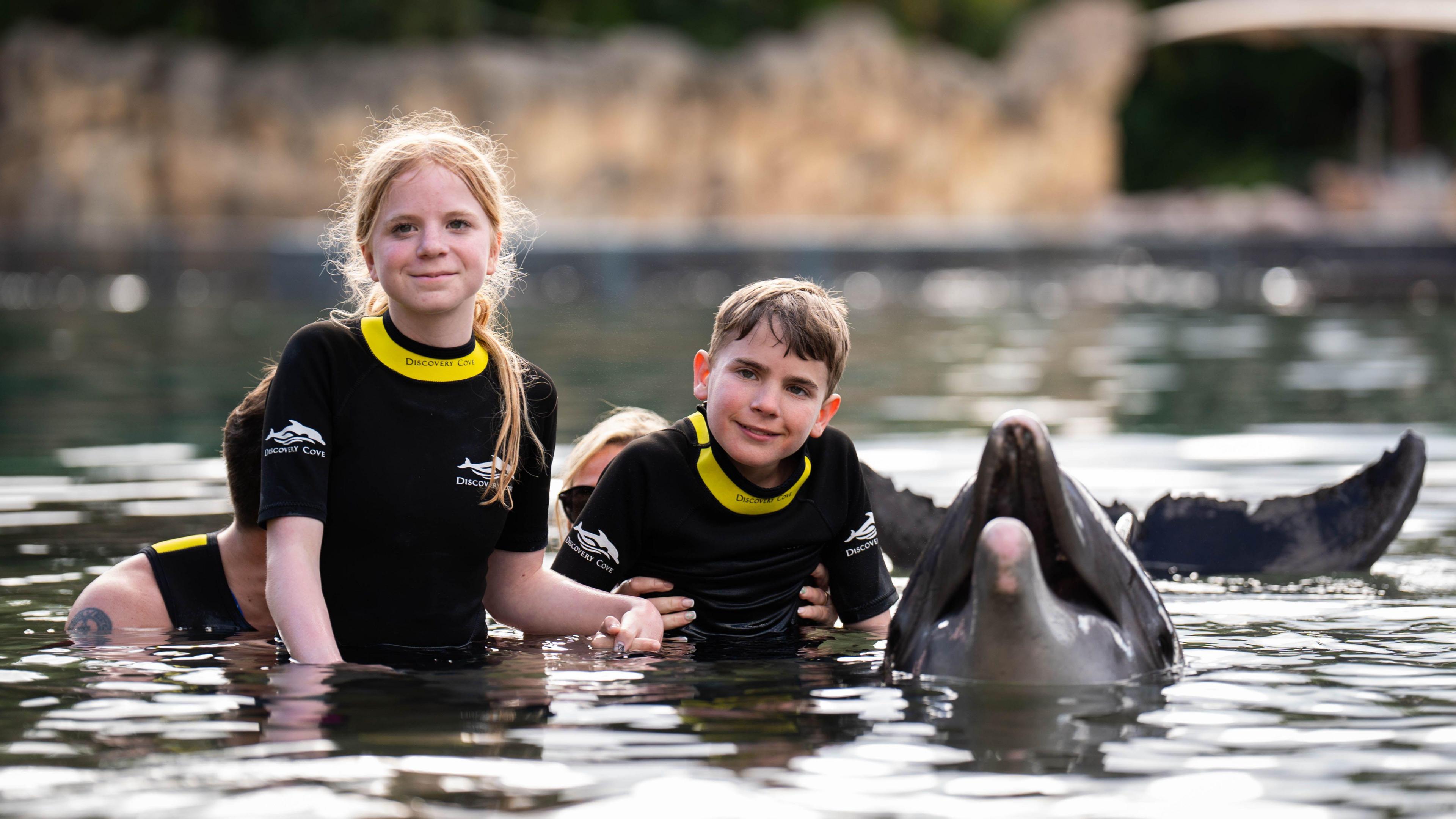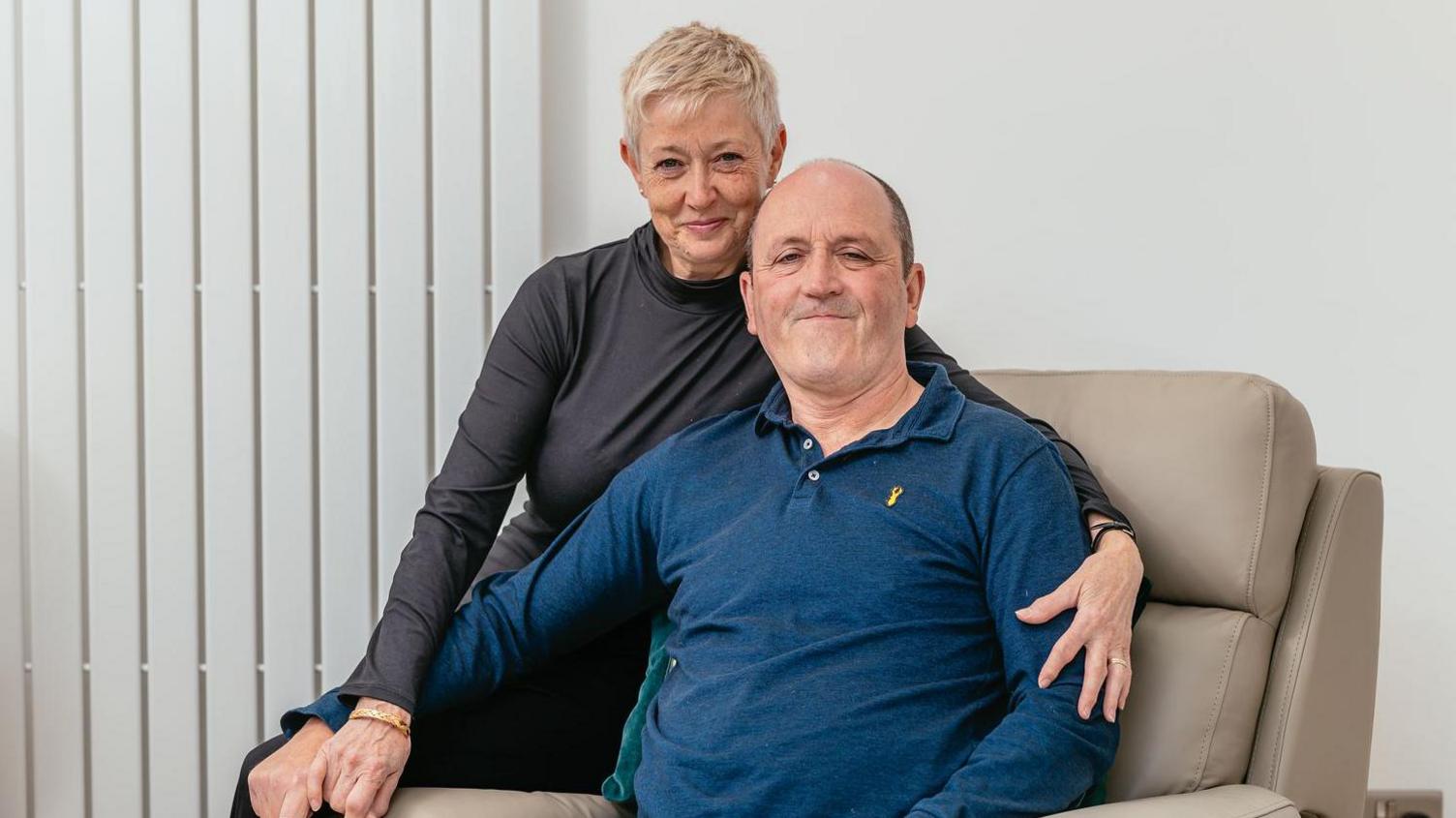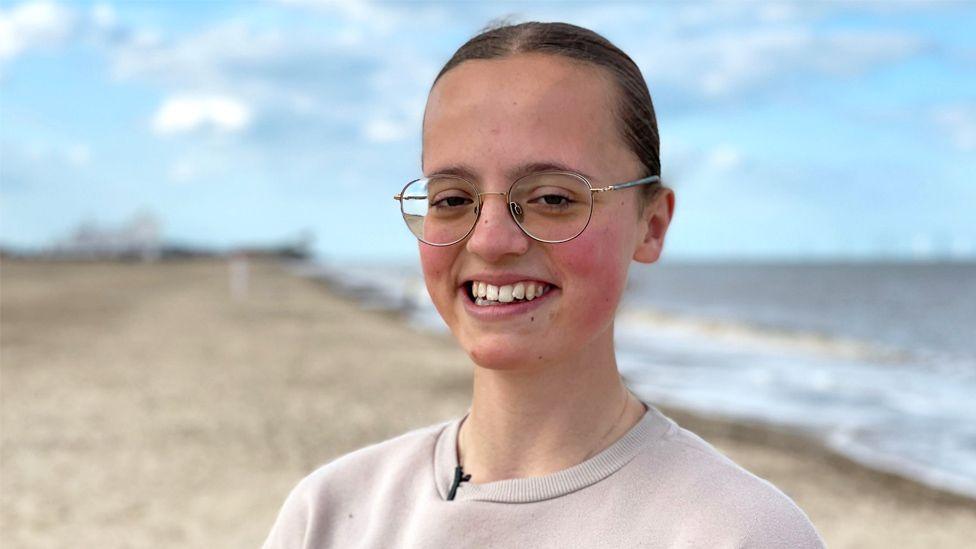Man pleads for unaffordable life-extending drugs

Darren Ashton-Lake says the NHS will not pay for a new "life changing" drug
- Published
A man living with a rare genetic disorder says hope is being taken away because the drug he needs is not available in the UK.
Darren Ashton-Lake, from Trowbridge in Wiltshire, was diagnosed with Friedreich's Ataxia (FA) as a teenager 15 years ago - a condition which progressively damages the nervous system.
The drug which helps slow down the disease, omaveloxolone, will no longer be available in the UK after its manufacturer Biogen pulled out of its plans because it is too expensive for the NHS.
Mr Ashton-Lake, 32, said: "What would I be fighting for if I don't get the treatments and medications I need?"
Biogen u-turned on applying to the National Institute for Healthcare and Excellence (Nice), which approves medication for the NHS to use, because the drug was considered too expensive.
Mr Ashton-Lake is currently calling for better access to omaveloxolone
FA is a genetic, debilitating and life-shortening neurodegenerative disease, affecting approximately one in 50,000 people in the UK.
Symptoms also include vision impairment, hearing loss, slurred speech, aggressive scoliosis, diabetes mellitus, and serious heart conditions.
"I think we should be allowed access to drugs that we need. What figure can you really put on someone's life?" Mr Ashton-Lake said.
"This [drug] is potentially life changing.
"Not allowing drugs like this, they're taking away that hope and if you haven't got hope what have you got. What would I be fighting for?"
Should we be paying more for our drugs?
He said "everything went upside down" in the years after his diagnosis at 17 years old.
He had aspirations of horse riding for Team GB, and believed the drug would have helped him continue the sport.
He said: "If I had had this tablet five years ago, who knows what I would be like today".
Kylie Bromley, managing director of Biogen UK, said the rise in the amount of money Nice is prepared to pay for drugs is long overdue, adding and the amount has been "essentially reducing" for the last "20 plus years" due to inflation.
Omaveloxolone is available in the USA and parts of Europe, at a reported annual cost of £298,500.32 which is considered too expensive by the NHS.
Since 1999, the amount Nice is prepared to pay for drug treatments is between £20,000 to £30,000.
Ms Bromley said: "Assessing some rare diseases medicines is actually inappropriate to do under a cost effectiveness threshold because of the nuances."
The Department of Health and Social Care said it is working with the pharmaceutical industry to "accelerate growth in net spend on innovative medicines".
Max Corrigam, from Worle in Somerset, is one of seven patients who got onto a clinical trial for the drug at the University College London (UCL) and said it has helped him "exponentially".

Max Corrigam, who has access to omaveloxolone said it has helped "exponentially"
Mr Corrigam, 23, has been taking the drug since 2018.
"I feel like my speech is clearer than it would have been if I wasn't on the drug," he said.
"If I didn't take the drug I wouldn't have had enough energy or motivation to even consider doing a degree at university."
Nice said the condition was not rare enough to be considered by its highly specilaised technology committee, according to its criteria checklist.
"No more than 300 people in England are eligible for the technology in its licensed indication and no more than 500 across all its indications," a spokesperson said.

Omaveloxolone currently has a reported annual cost of £298,500
However Ataxia UK, a charity which supports people with FA, said it has 706 people in England on its register as having the disease.
Founder of the Ataxia Centre at University College London, Professor Paola Giunti, said while the condition is "progressive", the drug means it will do so at a much "slower pace" compared to those who have not had the drug.
She said: "The earlier you treat the patient, the better the outcome. We don't want our patients to wait for years before having the drug."
The Department of Health and Social Care said it is investing up to £600m in the health data research service.
The spokesperson added: "We have also committed to working with industry to accelerate growth in net spend on innovative medicines over the course of this plan compared with the previous ten years, helping to ensure that by 2030, the UK will be one of the top three fastest places in Europe for patient access to medicines."
Get in touch
Tell us which stories we should cover in Wiltshire
Follow BBC Wiltshire on Facebook, external, X, external and Instagram, external. Send your story ideas to us on email or via WhatsApp on 0800 313 4630.
Related topics
- Published7 November 2024

- Published3 January

- Published27 June
